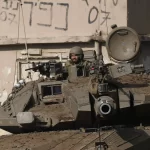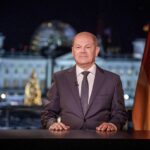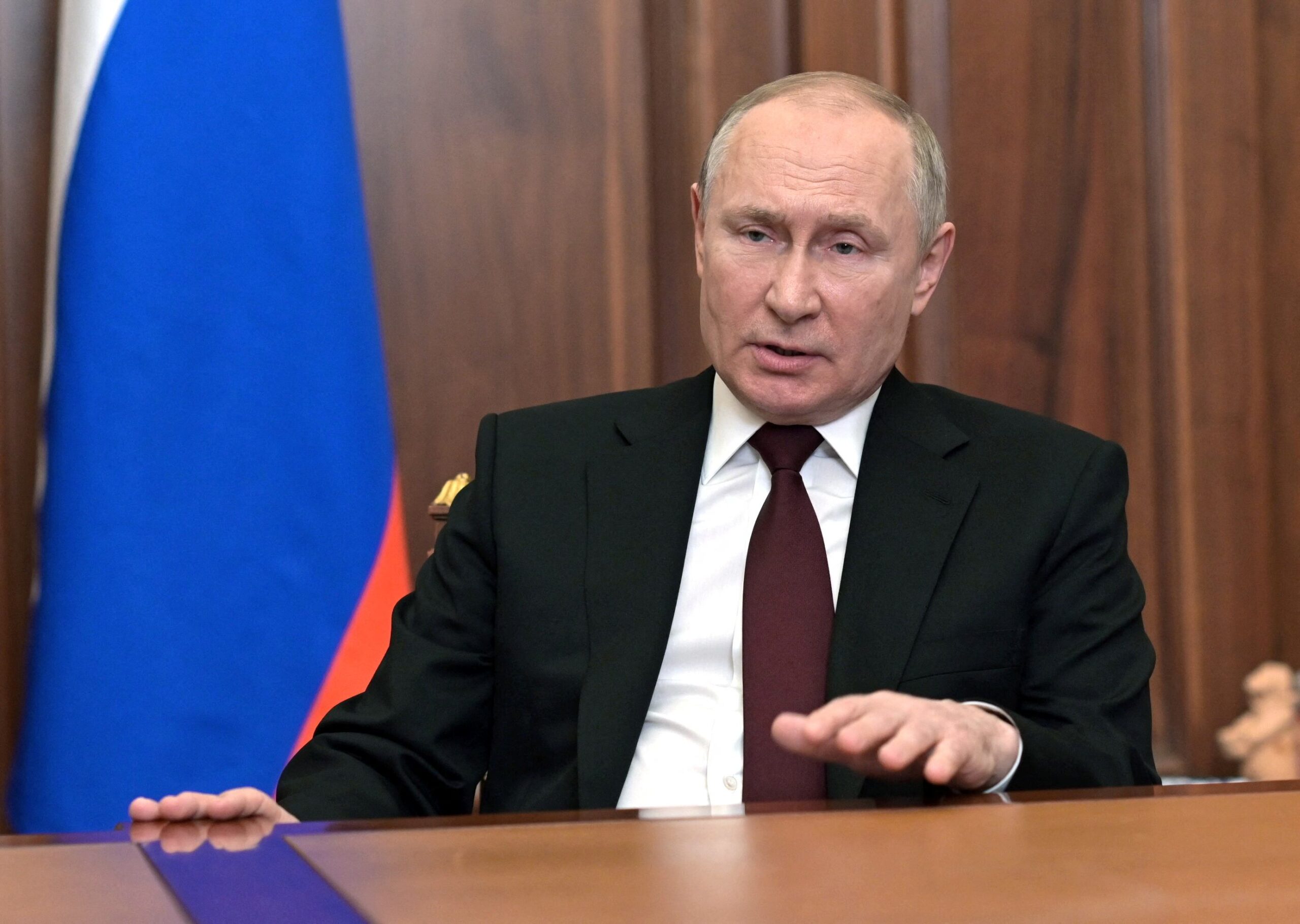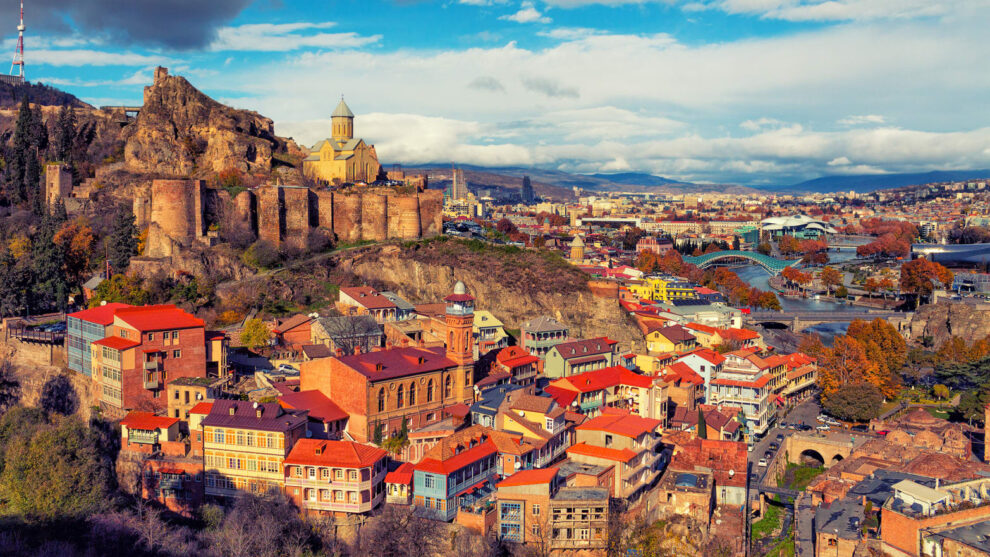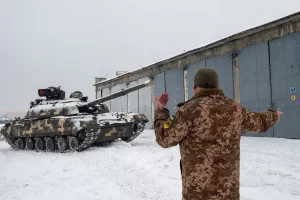I visited Georgia for the first time as HR/VP to tell the Georgian leaders and citizens that Georgia belongs to the European family. However, to obtain the status of a candidate country, Georgia needs to make significant progress on depolarisation of the political life, de-oligarchisation, justice reform, electoral reform and media pluralism.
In Georgia, I met President Salomé Zurabishvili, Prime Minister Irakli Garibashvili, Foreign Minister Ilia Darchiashvili, as well as Parliamentarians and civil society representatives.
Three main messages
I wanted to share three main messages with the Georgian people and the Georgian authorities. First: there is no doubt for the EU that Georgia belongs to the European family. Visiting Georgia, you can feel the overwhelming European aspiration of the Georgian people. I have seen more European flags in the street of Tbilisi than in most European capitals. More than 80% of the Georgians want their country to become a part of the European Union. It is for sure an impressive figure and we value fully this commitment. During my stay, all my interlocutors made a plea for Georgia to receive candidate status to the EU shortly. It is a call that we have heard over the past months consistently from the authorities, from the opposition and from the civil society representatives.
It is a call that we do not want to leave unheard. However, there are clear requirements for Georgia along this way, mapped out in the 12 priorities put forward by the European Commission. The next steps on the European path for Georgia will depend on the results achieved on them. As of last June, Georgia has delivered on three of them. But on the other nine, quite a lot of work remains to be done. It concerns mainly depolarisation of the political life, de-oligarchisation of the economic, political and social life, justice reform, electoral reform, media pluralism and human rights.
One of the main challenges on the European path for Georgia is indeed the strong political polarisation. For the country to become an EU candidate, all political forces need to work together constructively. As I discussed with the Georgian Parliamentarians, the majority has to be inclusive and the minority cooperative. The EU accession process is a national endeavour that needs to stand over party politics. The government and the party in power should work on creating an environment that makes this cooperation possible. Launching the impeachment procedure against President Zurabishvili, has further increased this counterproductive polarisation. To be able to go ahead swiftly with Georgia’s European path, all institutions of the country have to work together, i.e. cooperate. Georgian leaders should not miss this historic opportunity.
No shortcuts to EU accession
There are no shortcuts to EU accession. Neither for Georgia, nor anyone else. The enlargement process always follows clear criteria. It requires, for sure, hard work, political will and clear commitment to the European Union’s values. But, as I told my Georgian counterparts, I know from my own Spanish experience that EU membership has a big transformative power and is an important security commitment. This hard work is worth it, not only to become a member of the European Union, but, more importantly, for improving the everyday life of citizens. Georgia has a robust administration and a vibrant civil society. It has all the potential to achieve this historic task.
My second message was related to Russia’s war of aggression against Ukraine. The EU is supporting Ukraine, and we will support Ukraine for as long as it takes. The EU welcomes the clear position of Georgia in international fora in this regard. It is crucial to coordinate our efforts with our closest partners to isolate Russia internationally. Therefore, I welcomed the close cooperation with Georgia on prevention of sanctions’ circumvention. A lot has been done in Georgia in that respect and I expressed our clear recognition for these efforts.
However, I have had to say also that we regret the resumption of direct flights between Georgia and Russia, making Tbilisi a hub for bringing Russians to Europe. More engagement is also needed to counter Russia’s hybrid activities, starting with Russia’s war of propaganda and disinformation. The EU will continue supporting independent media and civil society in Georgia to help build resilience to information manipulation. Independent media and fair access to information are at the core of democracy.
Alignment with our foreign policy is a commitment that we expect from all countries aspiring to become members of the European Union. This alignment is also a commitment that Georgia itself undertook already in 2014 under the Association Agreement with the EU. However, in that regard, I see right now quite a lot of room for improvement.
Unwavering support to Georgia’s sovereignty and territorial integrity
My third message was about our unwavering support to Georgia’s security, sovereignty and territorial integrity. Since 2008, Georgia has been a victim of Putin’s neo-imperialist worldview. Our longstanding commitment to stand by Georgia is today as strong as ever in light of Russia’s aggression against Ukraine.
These are not just words. We are backing this up by concrete actions: we have an active EU Special Representative for the South Caucasus, Toivo Klaar and our dedicated civilian mission, the EU Monitoring Mission (EUMM) that has been in the country for the last 15 years. The mission patrols along the administrative boundary line with the breakaway regions South Ossetia and Abkhazia. Every day, it plays an important role in ensuring stability in the region by observing the situation on the ground, reporting on incidents, and, generally, through its presence in the relevant areas.
I visited the area adjacent to the Administrative Boundary Line with the breakaway region of South Ossetia with the EU Mission. I discussed of course already the situation around the conflict with the Georgian authorities, but I had also the opportunity to exchange with the civilian population living near the Administrative Boundary Line. They told me about their daily hardship and grievances – from divided backyards that cannot be accessed anymore to receiving their pension. They are paying a high price for this conflict.
A strong security and defence cooperation
We have established as well an increasingly strong security and defence cooperation with Georgia, which has made remarkable contributions to our military missions around the world. The EU is helping Georgia strengthen its defence forces through the European Peace Facility (EPF). To date, we have provided €62 million for non-lethal equipment vital for rapid response in crises. The first batch has already reached Georgia and more assistance is on the way.
To conclude, I think that my main message to leaders and citizens of Georgia has been clear: Georgia can count on the European Union and the EU door is open for Georgia. We want to see Georgia succeeding on its European path and hope that Georgian leaders will do their part not to miss this great opportunity.
Source: European Union External Action




